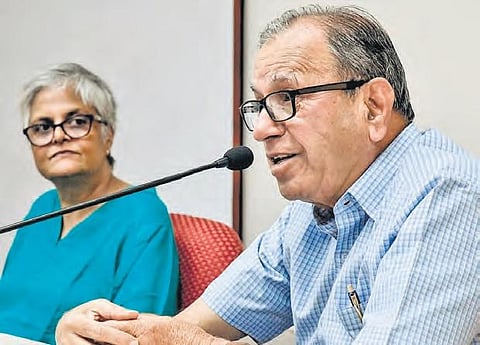

HYDERABAD: Speaking on the controversial National Register of Citizens (NRC) and new Citizenship Act, regional director of Council for Social Development (CSD), Kalpana Kannabiran, advocated a re-visioning of legacy documents, required to determine a person’s citizenship. Since legacy documents are central to the NRC process, she argued that “forests are the legacy documents of the adivasis” and other traditional forest-dwellers. Kannabiran, who was presenting her paper ‘The Shifting Sands of Citizenship: Dispossession, Constitutional Ruptures and Borderlands’ on Tuesday, looked at the labelling of forest dwellers as “encroachers”. She talked about the threat of their eviction from forests despite constitutional and statutory safeguards like the Forest Rights Act, 2006.
“Who are the encroachers? Those who live in and regenerate the forests from within or those who colonise them from without, sometimes in the name of wildlife conservation and sometimes in the name of eminent domain,” she asked. During her presentation, Kannabiran looked at the citizenship debate through the prism of dispossession along four tracks — segregation, eviction, decitizenisation, and occupation. She looked at ‘dispossession as decitizenisation’ in the context of the CAA and recalled debates in the Constituent Assembly. Despite the backdrop of Partition, there was a clear view that lex soli (grounds of birth) and not lex sanguinis (grounds of race and ethnicity irrespective of birth) should be the determining principle. She also pointed out that there was a consensus on the non-denominational basis of citizenship. Kannabiran argued that this was violated in the CAA, which introduced religious denomination as the basis of citizenship, excluding Muslims and non-Islamic countries like Sri Lanka and Myanmar from its purview. She further pointed out that the distinction made in the official position among illegal migrants in the context of CAA 2019 was “unsustainable”. Political Scientist Professor G. Haragopal, who chaired the seminar, observed that the ruling party was defining who a citizen was in very narrow terms. This gave rise to widespread fear and anxiety among minorities, especially Muslims, he said.